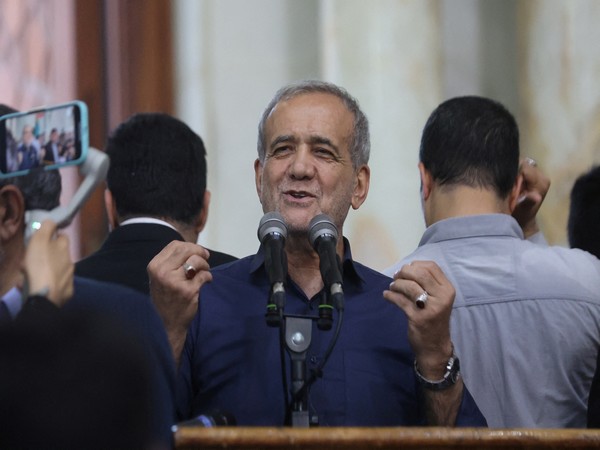Pezeshkian's Victory Marks New Era in Iranian Politics
Iran's president-elect, Masoud Pezeshkian, triumphed over hardline contender Saeed Jalili and pledged to lead Iran through economic and geopolitical challenges. Emphasizing reform, Pezeshkian's win is seen as a significant shift towards openness and pragmatism in Iranian politics.

- Country:
- Iran
Iran's president-elect, Masoud Pezeshkian, delivered his inaugural address in Tehran after winning the election run-off against hardline opponent Saeed Jalili. Emphasizing his centrist and reformist stance, Pezeshkian highlighted his victory as a pivotal moment for Iran, Al Jazeera reported. At the revered mausoleum of Ayatollah Ruhollah Khomeini, he committed to overcoming challenges and ensuring prosperity for all Iranians.
"We are ahead of a big trial, a trial of hardships and challenges, simply to provide a prosperous life to our people," Pezeshkian remarked, reflecting on the heavy responsibilities ahead after securing nearly 16.4 million votes from more than 30 million cast. Jalili acknowledged Pezeshkian's win and urged national unity and support. "Not only should he be respected, but now we must use all our strength and help him move forward with strength," Jalili stated in a state television broadcast, as reported by Al Jazeera.
The election, notable for a significant turnout of 49.8%, revealed a divided electorate with many abstaining or protesting silently. Pezeshkian's campaign, advocating for reform and increased openness to the international community, resonated amid Iran's socio-political complexities. The snap election followed the sudden death of Ebrahim Raisi. Celebrations erupted among Pezeshkian's supporters, and global leaders, including Russian President Vladimir Putin, extended their congratulations. Western leaders awaited further developments in Iran's political landscape.
Pezeshkian's presidency is expected to commence within 30 days, contingent upon parliamentary approval and Supreme Leader Ayatollah Ali Khamenei's endorsement. His term will likely focus on navigating Iran through economic challenges exacerbated by international sanctions. Analysts suggest Pezeshkian may adopt a pragmatic foreign policy, potentially renewing negotiations over Iran's nuclear program, making international relations a focal point amidst broader geopolitical tensions.
Tohid Asadi, a professor at Tehran University, reflected the electorate's desire for policy changes. "Pezeshkian's victory showed that many Iranians are interested in a shift in domestic and foreign policies," Asadi noted, highlighting the dynamic nature of Iranian politics. The role of the Supreme National Security Council in shaping foreign policy points to the distributed decision-making within Iran's government.
Tehran-based analyst Mostafa Khoshcheshm advised against expecting drastic foreign policy shifts without broader political consensus. "The ball is going to be in the court of the United States and the West," Asadi added, emphasizing the pivotal role of international dynamics. The upcoming US presidential election introduces additional uncertainty, impacting future negotiations between Iran and global powers.
As the ninth elected president of Iran, Pezeshkian inherits a nation grappling with economic constraints and geopolitical pressures, Al Jazeera reported.
(With inputs from agencies.)










